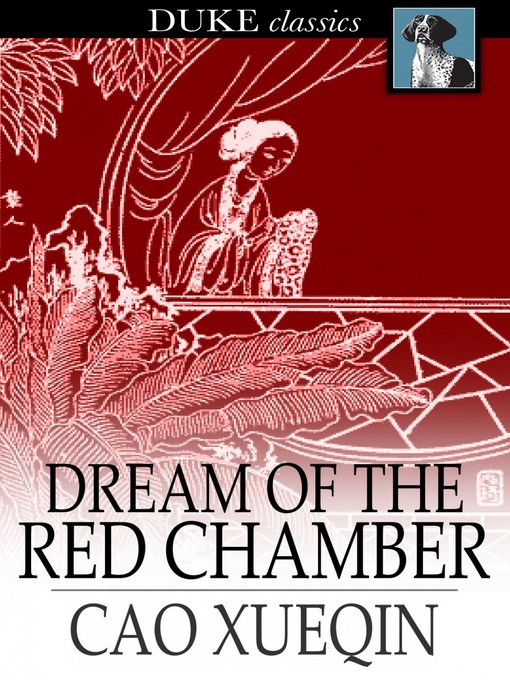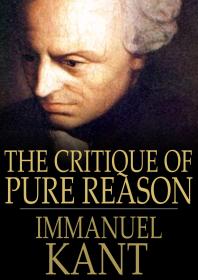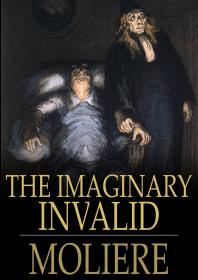 Go to A-Z Databases: eBooks to search for more eBooks.
Go to A-Z Databases: eBooks to search for more eBooks.
Want more on finding books or eBooks? Try our How to Use Books & eBooks guides.
 Love-Letters Between a Nobleman and His Sister
by
Aphra Behn
The first prominent female writer working in English, author Aphra Behn lived a fascinating life, spending time as a spy for the U.K. before turning her attention to literary pursuits. This novel tells the tale of a young woman who is seduced by her loutish brother-in-law and then goes to extreme lengths to secure their unholy union.
Love-Letters Between a Nobleman and His Sister
by
Aphra Behn
The first prominent female writer working in English, author Aphra Behn lived a fascinating life, spending time as a spy for the U.K. before turning her attention to literary pursuits. This novel tells the tale of a young woman who is seduced by her loutish brother-in-law and then goes to extreme lengths to secure their unholy union.
 Oroonoko : Or, The Royal Slave
by
Aphra Behn
Aphra Behn was one of the first professional English female writers and Oroonoko was one of her earliest works. It is the love story between Oroonoko, the grandson of an African king, and the daughter of that king's general. The king takes the girl into his harem, and when she plans to escape with his grandson, sells her as a slave. When Oroonoko tries to follow her he is caught by an English slave trader and taken to the same West Indian island as his love.
Oroonoko : Or, The Royal Slave
by
Aphra Behn
Aphra Behn was one of the first professional English female writers and Oroonoko was one of her earliest works. It is the love story between Oroonoko, the grandson of an African king, and the daughter of that king's general. The king takes the girl into his harem, and when she plans to escape with his grandson, sells her as a slave. When Oroonoko tries to follow her he is caught by an English slave trader and taken to the same West Indian island as his love.
 Dream of the Red Chamber Hung Lou Meng, Books I and II
by
Cao Xueqin
Dream of the Red Chamber is one of the four Chinese classics. The novel is semi-autobiographical and it gives an incredibly detailed insight into 18th-century life in China, particularly that of the aristocracy. The plot is grand in scale, peopled with a complex array of characters.
Dream of the Red Chamber Hung Lou Meng, Books I and II
by
Cao Xueqin
Dream of the Red Chamber is one of the four Chinese classics. The novel is semi-autobiographical and it gives an incredibly detailed insight into 18th-century life in China, particularly that of the aristocracy. The plot is grand in scale, peopled with a complex array of characters.
 The Critique of Pure Reason
by
Immanuel Kant
The Critique of Pure Reason is one of the seminal texts of Western philosophy, and the first of Kant's three Critiques. In it he takes up Hume's argument that cause and effect cannot be experienced by the senses. Hume argued that we experience events one after the other, but not that one event is caused by the preceding event. Kant argues that synthetic, rather than analytic thinking is needed, and addresses the problem of thinking synthetically without relying on the empirical method.
The Critique of Pure Reason
by
Immanuel Kant
The Critique of Pure Reason is one of the seminal texts of Western philosophy, and the first of Kant's three Critiques. In it he takes up Hume's argument that cause and effect cannot be experienced by the senses. Hume argued that we experience events one after the other, but not that one event is caused by the preceding event. Kant argues that synthetic, rather than analytic thinking is needed, and addresses the problem of thinking synthetically without relying on the empirical method.
 Discourse on Inequality
by
Jean-Jacques Rousseau
The searing indictment of man-made inequality in all its many forms that Rousseau offers in Discourse on Inequality is a must-read for philosophy buffs and supporters of social justice. This artfully composed argument sets forth the core elements of Rousseau's philosophical views, including his unique take on Hobbes' concept of nature and natural law.
Discourse on Inequality
by
Jean-Jacques Rousseau
The searing indictment of man-made inequality in all its many forms that Rousseau offers in Discourse on Inequality is a must-read for philosophy buffs and supporters of social justice. This artfully composed argument sets forth the core elements of Rousseau's philosophical views, including his unique take on Hobbes' concept of nature and natural law.
 Gulliver's Travels
by
Jonathan Swift
Gulliver's Travels by Jonathan Swift is a witty and insightful satirical novel recounts the history of Lemuel Gulliver, "First a Surgeon, and then a Captain of several Ships". In his travels Gulliver visits the Land of Lilliput, where he towers over the local inhabitants, the land of Brobdingnag where he is much smaller than the citizens, the floating island of Laputa, infested with fanatical scientists who in their obsession with reason behave with no sense at all and finally to the land of the brutish Yahoos who look to all intents and purposes like humans and are derided by the intelligent horse people. John Gay said in a 1726 letter to Swift that "it is universally read, from the cabinet council to the nursery"
Gulliver's Travels
by
Jonathan Swift
Gulliver's Travels by Jonathan Swift is a witty and insightful satirical novel recounts the history of Lemuel Gulliver, "First a Surgeon, and then a Captain of several Ships". In his travels Gulliver visits the Land of Lilliput, where he towers over the local inhabitants, the land of Brobdingnag where he is much smaller than the citizens, the floating island of Laputa, infested with fanatical scientists who in their obsession with reason behave with no sense at all and finally to the land of the brutish Yahoos who look to all intents and purposes like humans and are derided by the intelligent horse people. John Gay said in a 1726 letter to Swift that "it is universally read, from the cabinet council to the nursery"
 Vindication of the Rights of Woman
by
Mary Wollstonecraft
Mary Wollstonecraft wrote Vindication of the Rights of Woman in response to public debate and discussion about the education of women. She argues that women should be educated according to their station, and that they could be more than mere wives to their husbands and educators to their children. The text is one of the earliest works of feminist philosophy.
Vindication of the Rights of Woman
by
Mary Wollstonecraft
Mary Wollstonecraft wrote Vindication of the Rights of Woman in response to public debate and discussion about the education of women. She argues that women should be educated according to their station, and that they could be more than mere wives to their husbands and educators to their children. The text is one of the earliest works of feminist philosophy.
 The Imaginary Invalid
by
Molière
The Imaginary Invalid is a three-part comedy about a miser who imagines illnesses for himself, and whose doctor milks his hypochondria for everything he can get. Their mutual greed and dishonesty lead to their downfall. It was the last play Moliere ever wrote, and he collapsed whilst playing the hypochondriac, shortly before he died. The play originally included dance sequences and musical interludes.
The Imaginary Invalid
by
Molière
The Imaginary Invalid is a three-part comedy about a miser who imagines illnesses for himself, and whose doctor milks his hypochondria for everything he can get. Their mutual greed and dishonesty lead to their downfall. It was the last play Moliere ever wrote, and he collapsed whilst playing the hypochondriac, shortly before he died. The play originally included dance sequences and musical interludes.
 The School for Husbands
by
Molière
The School for Husbands (L'#65533;cole des maris) is a work by Moli#65533;re (the stage name of Jean-Baptiste Poquelin), a French playwright who is often considered to be one of Western literature's great masters of comedy. In a theatre in the Louvre and in the Palais-Royal, Moli#65533;re found success among the Parisians with The School for Husbands. First performed in 1661, it forms part of Moli#65533;re's "Jealousy series", which includes ou Le Cocu imaginaire (The Imaginary Cuckold), Dom Garcie de Navarre ou Le Prince jaloux (The Jealous Prince), and L'#65533;cole des femmes (The School for Wives).
The School for Husbands
by
Molière
The School for Husbands (L'#65533;cole des maris) is a work by Moli#65533;re (the stage name of Jean-Baptiste Poquelin), a French playwright who is often considered to be one of Western literature's great masters of comedy. In a theatre in the Louvre and in the Palais-Royal, Moli#65533;re found success among the Parisians with The School for Husbands. First performed in 1661, it forms part of Moli#65533;re's "Jealousy series", which includes ou Le Cocu imaginaire (The Imaginary Cuckold), Dom Garcie de Navarre ou Le Prince jaloux (The Jealous Prince), and L'#65533;cole des femmes (The School for Wives).
 The Interesting Narrative of the Life of Olaudah Equiano
by
Olaudah Equiano
The Interesting Narrative of the Life of Olaudah Equiano, written in 1789, details its writer's life in slavery, his time spent serving on galleys, the eventual attainment of his own freedom and later success in business. Including a look at how slavery stood in West Africa, the book received favorable reviews and was one of the first slave narratives to be read widely.
The Interesting Narrative of the Life of Olaudah Equiano
by
Olaudah Equiano
The Interesting Narrative of the Life of Olaudah Equiano, written in 1789, details its writer's life in slavery, his time spent serving on galleys, the eventual attainment of his own freedom and later success in business. Including a look at how slavery stood in West Africa, the book received favorable reviews and was one of the first slave narratives to be read widely.
![]()
Go to OneSearch to search for more print books.
Want more on finding print books? Try our How to Use OneSearch guide.
© 2024 COM Library
1200 Amburn Road, Texas City, Texas 77591
409-933-8448 . FAX 409-933-8030
This work is licensed under a Creative Commons Attribution-NonCommercial 4.0 International License